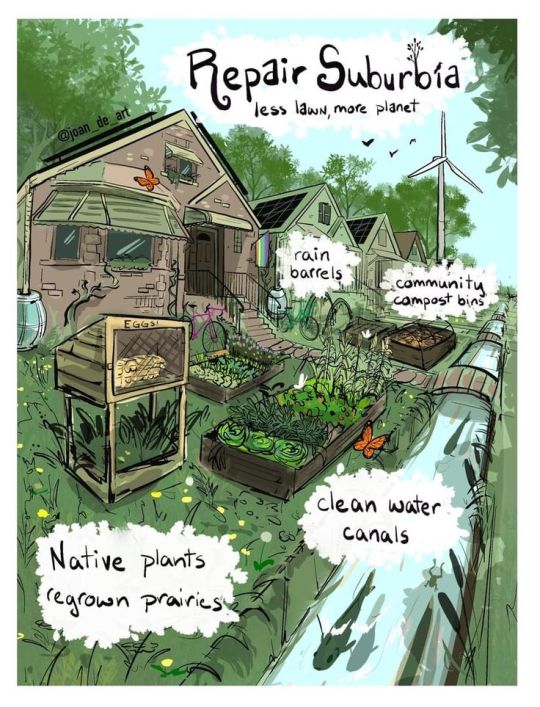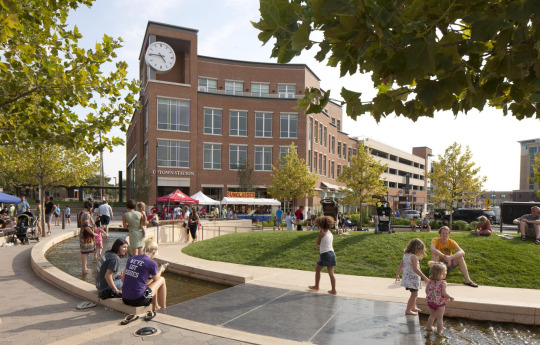#Sustainable Cities And Communities
Text
Conversation I - Transforming Cities and Infrastructure for Sustainable Future.

Human settlements are developing at an unprecedented scale. According to the World Economic Forum, more than half of the global population lives in cities–a figure that’s expected to rise to 80% by 2050. In addition, the World Bank projects that over the next 20 years, urban population in developing countries will double to 4 billion, and the urbanized land area will triple. While rapid growth creates new opportunities, it has also brings serious social, economic, and environmental challenges.
Cities, dealing with C and greater regulation, are facing significant challenges. Against the backdrop of a global pandemic, climate crisis, economic uncertainty, and budget constraints, it is imperative for cities to act with urgency and to invest in more sustainable resilient infrastructure and resources.
Building inclusive, resilient, competitive, and sustainable human settlements is essential for achieving the Sustainable Development Goals, for eliminating extreme poverty and boosting shared prosperity at the local, regional, and national levels.
This conversation shall discuss the concept and key dimensions of “Sustainable Cities and Communities” with special focus on SDG 11 targets 11.3, 11.5, 11.6, and 11.a.
#aging infrastructure#SDG 11#Cities#Human settlements#panel discussion#International Day of Women and Girls in Science#11 february#Sustainable Cities and Communities
0 notes
Text

Little vision for a more beautiful, sustainable, tactile future.
2K notes
·
View notes
Text
The challenges of EV ownership
I'm subscribing to an EV with elmo.
These are my observations over the first 10 days of running an EV ...

View On WordPress
0 notes
Text
Olympic Day

View On WordPress
#Anniversary#Climate Action#discover#eco-heritage tour#Excellence#forest#friendship#George Genereux#George Genereux Urban REgional Park#Good Health and Well-Being#learn#Learn Discover#Life on Land#Move#Olympics#respect#Saskatchewan#Saskatoon#Sustainable Cities and Communities#Sustainable development goals#trees#UN SDG 11#UN SDG 13#UN SDG 15#UN SDG 3#United Nations#woods
0 notes
Text
reminder that fighting for climate solutions means fighting for public health.
switching to clean energy means less air pollution and significantly less deaths associated with fossil fuel extraction
green, localized, and walkable neighborhoods with accessible transport is good for physical, mental, social, and emotional health
cutting down the beef and dairy industries and eating more plant based (for those who can) is better for health of individuals
fighting for unionized labor in good, clean jobs means less stress in people's daily lives which leads to less stress-related illness and injury
Fight for your neighbors, fight for the planet
#solarpunk#sustainability#climate change#climate crisis#activism#walkable communities#walkable cities#plant based#clean energy
514 notes
·
View notes
Text
People should get reimbursed for commute time
If it takes someone over an hour to get to work, that should be part of their pay.
Many people have to commute long distances/through areas of slow traffic because they cannot afford to live closer to their workplace. This is also why work from home is a big thing.
If corporations want people to return to their offices, they need to make it appealing enough. I'm not going to fight through traffic for 2 hrs in my free time just to sit at a computer all day, when I could just stay home and don't waste that time.
Corporations would be forced to invest in local affordable housing, perhaps even affording housing credits. They would need to invest in local infrastructure (which in the US is falling to pieces) and improve public transport in their area (faster commute -> less cost to the company, less cars on road -> traffic moves faster, employees without cars would still be able to get to work). Also people would be less stressed and actually take the time to drive safely because they wouldn't feel the need to rush. It would make companies actually take an interest in how their workers get to work and investing in local communities.
I live sort of near DC. We have a HUGE amount of workers commuting into the city and its surrounding cities. Retail workers also have to commute to these cities and suburbs because they cannot afford to live in those areas. My boyfriend commutes an hour to his part time job at a kennel in a rich town. A lot of people live in the more affordable, lower income, far away areas in the nearby states because housing prices in my area are fucking insane. I knew someone who commuted 2+ hours to work and 2+ hours back. There are people who drive even more than that.
And where do these employees have to live? Food deserts. Crumbling infastructure. No parks, no walkability, no public transport, bare bones everything. Only the cities which only the few can afford have basic infrastructure. And even the people living there have to commute to OTHER even richer areas. There's a ton of places where housing developments have just been shoved and are surrounded by nothing but farms. There's nothing local to do, so everyone goes to the closest town and city. It's also why you see a lot of older towns have abandoned main streets. Why have your business cater to the 100 people who live there when you can be in a city with thousands?
There has been some recent interest in paid commute times. 1 2 especially with corporations trying to get workers to go back to the office. Personally, I love working in my office because having a separate space outside my home helps me keep work and home separate and allows me to focus easier since I'm not in "home mode". I don't have room for an office in my parents house so working from home kinda sucks rn even though it would help a lot since I'm disabled. But it is nice being physically near my coworkers, even if it gets annoying sometimes. Also many jobs involve fieldwork (like mine!) which can't be done remotely anyway!
There would be incentive for corporations to keep their employees close AND provide more remote work options for those living farther away. As well as matching pay to fit rent/housing prices in the area (or vice versa).
Also there needs to be something done about corporations having their entire workforce sourced from another country entirely, working for pennies. But that's an even more complicated situation that I don't have experience in.
#long post#its 6am rant time#its so much more sustainable to have people live and work in the same communities#so many resources are spent on commute#i like my drive because it gives me time to wake up and i like just sitting n focusing for a bit#but my commute is also pretty easy since I am going away from the city towards the lower income areas#on the other direction it is backed up completely most days#we drive a lot during work to bc we visit different restoration sites and we get paid for those driving times!#it all comes down to corporations not giving a shit about their employees lives#pls dont try n dox me there are a ton of areas near DC like mine#so its harder than you'd think#but yea ive seen some crazy fucking traffic and commute times#corporations should invest in their communities instead of acting like fucking parasites#remote work#return to office#commute#labor rights#id love if sustainable city experts n economists chimed in#sustainability#sustainable cities#local economy#community
40 notes
·
View notes
Text
The future isn't electric cars, it's public transportation. As dr. Gupta says, lithium batteries are still very polluting, and don't exist in a large enough quantity to supply the world with enough electric cars to get everybody driving one.
The path forward that I see has well arranged public transportation in a spiderweb form rather than a wordweb. All areas connected to each other rather than all transport going to the city center. It is publicly funded through taxes so you don't have to pay every time you use the train or take a bus.
For the elderly and the disabled there are special taxis upon request. You can rent a car or a van when you really need one, electric ofc. But you have to specify the reason and if it's something dumb like 'going to the gym by car' it can get denied.
If you need a car for your job because you work in emergency services such as GP, cop, etc. you drive one from your work, which you park at your workplace at the end of your workday, after which you take public transport home. You need a special dispensation to drive a car. Your workplace needs a special dispensation to own and let you drive a car.
And imagine all the things we can do with the space that is freed up. First of all, cars actively discourage community, so neighbourhoods become a lot more social. All the extra lanes on highways that are suddenly no longer needed can be turned into strips of forests which work noise reducing. If all cars are electric and the amount driven falls by like 85% (I am pulling this statistic out of my ass, this is by no means based on any actual data) there will be significantly less noise anyway.
We can take parking spaces and turn them into pollinator gardens, community gardens, sensory gardens for children.
We can get on roads again without fear of being hit by some loser with a god complex and a tin can murder machine. We can walk, bike, convene, live.
#fuck cars#climate crisis#climate change#anolish cars#climate solutions#sustainability#walkable cities#bikeable cities#community#greencore#green future#anti car#mental health#no cars#sensory garden#greenhouse gas reduction#abolish cars
38 notes
·
View notes
Text
AN OPEN LETTER to THE PRESIDENT & U.S. CONGRESS; STATE GOVERNORS & LEGISLATURES
Act Now: Save Public Transit from Extinction!
2 so far! Help us get to 5 signers!
I am writing to highlight the critical state of public transit in the United States and urge your support increased investment in this essential service. The challenges facing public transit—under-investment, over-reliance on car ownership, and racial disparities—have been exacerbated by the COVID-19 pandemic. It is imperative that we take bold action to address these issues for the benefit of our communities and our future.
Investing in public transit is not merely a matter of convenience; it is a necessity for tackling climate change, advancing equity, supporting essential workers, and fostering economic recovery. The largest source of carbon emissions in the U.S. stems from transportation, and increased investment in public transit can significantly reduce this impact. Furthermore, public transit plays a crucial role in providing equitable access to jobs, schools, and services, especially for those who cannot afford or do not have access to private vehicles.
With over 2.8 million essential workers relying on public transit, our pandemic response and economic recovery hinge on the strength and viability of our transit systems. According to studies, sustained investment in public transportation yields substantial economic returns, with every $1 billion invested annually resulting in approximately $5 billion in additional GDP.
I commend initiatives like the Green New Deal for Transportation and efforts by organizations such as the CHARGE coalition to electrify and expand public transportation. These initiatives are pivotal in shaping a more sustainable and equitable transportation system for all Americans.
Therefore, I urge you to support emergency relief funding for public transit and join the movement to rebuild and improve our public transit system. This is not just an investment in infrastructure; it is an investment in our collective future.
Thank you for your attention to this urgent matter. I look forward to your support in advancing policies that will ensure a robust and accessible public transit system for all.
📱 Text SIGN PZHBAF to 50409
🤯 Liked it? Text FOLLOW IVYPETITIONS to 50409
💘 Q'u lach' shughu deshni da.
🏹 "What I say is true" in Dena'ina Qenaga
#ivypetitions#PZHBAF#resistbot#walkable cities#no cars#public transport#Public Transit#Transportation#Infrastructure#Equity#Climate Change#Essential Workers#Economic Recovery#Green New Deal#Sustainability#Community Access#Environmental Impact#Racial Justice#Urban Mobility#Public Transportation#Advocacy#Investment#Congress#Government#Policy#Legislation#COVID-19 Response#Public Health#Environmental Justice#Social Equity
6 notes
·
View notes
Text
gratitude post
#thankful for my loving and thoughtful partner my caring and creative friends my wise and giving parents#my body that takes me where i need to be and keeps me moving forward#my job that pays the bills without too much mental effort so i can dedicate my time to the struggle#my community that sustains and inspires me and gives me endless reasons to love it#music and street art and good sex and the lights of my city at night
5 notes
·
View notes
Text
Great Idea 22: Sustainable urbanism

The trend toward complete communities shapes the debate on sustainability and environmentalism, and vice-versa. Read more.
#great ideas#new urbanism#urban design#urbanism#cities#walkability#communities#environment#sustainability#sustainable design#sustainable development
9 notes
·
View notes
Text
*
#I want to be excited to go to Bordeaux#and I am#but I’m also really anxious#I have to make three flight transfers#(grad school city) -> London -> Madrid -> Bordeaux#which makes me terrified my luggage is going to get lost#and if/when I get there#apparently there’s a transportation workers’ strike#so I have no clue if I’ll be able to take the tram from the airport to where I’m staying#it’s an archive I’ve never used#and my French reading is really good. I can do books and sources and all of that#but it’s been so long since I’ve actually spoken French in any sustained way#plus I spent so much of the summer in Portugal speaking Portuguese#I’m nervous I won’t communicate well and will make a fool of myself with the archive staff or in a shop#intellectually I know that’s not the end of the world#but it’s still humiliating#my time of the month also decided to show up today#which is making me extra nervey and miserable#I know the best thing I can do for myself is take it one step at a time#but that’s easier said than done#not the stones#me stuff#I’m probably going to end up doing orals reading on the flight b/c I can never sleep on planes
5 notes
·
View notes
Text
#walkable cities#carfree#accessability#equality#community#freedoom#self sustainability#zerowaste#own yourself#innovation#urban planning#live your life#curb inflation#livable wages#UBI#politics
9 notes
·
View notes
Text
Digital Carbon Footprint, Underground Data Centers
In a recent piece of work with Informa I had the opportunity to speak with the General Manager of the Bluebird Underground Data Center, Todd Murren.
This article provides a link to that report, along with some background as to why data centre decarbonisation is an essential enabler to the reduction of our digital carbon footprints.

View On WordPress
#climate Change#Cloud#data#Digital#industry innovation and infrastructure#Sustainability#sustainable cities and communities#Technology
0 notes
Text
Earth Month and Indigenous Resurgence: Reclaiming Our Place in the Circle of Life

View On WordPress
#balance#biodiversity#City Nature Challenge#Community Engagement#conservation#CULTURAL HERITAGE#Earth Awareness#Earth Month#Earth Protection#environmental advocacy#environmental justice#environmental renewal#environmental stewardship#environmental sustainability#Friends of the Saskatoon Afforestation Areas#George Genereux Urban REgional Park#gratitude#harmony#healing#Holistic Healing#Indigenous knowledge#Indigenous Resurgence#indigenous rights#Indigenous Wisdom#Interconnected Worldview#interconnectedness#love#Mother Earth#planetary health#Reciprocity
2 notes
·
View notes
Text


Delicious fruit grown in the northern pacific northwest at a small intentional community I used to live at. We get free fruit from them every year and they always have so much surplus.
This 1 acre property is essentially a giant food forest with tiny homes built almost entirely from reclaimed building materials. Rent is very cheap and people living here grow a lot of their own food for part of the year, share basic supplies and coordinate child care.
Local zoning laws make this kind of thing illegal in most of the surrounding areas, but I believe that these types of properties are necessary for the future of housing, food security, and ecological stability.
Shout out to "the berry farm", you are loved 💕
6 notes
·
View notes
Text
Okay! I just watched a gameplay of tlou part 1 and I have some thoughts
First, I just wanted to say that, based on what everyone kept saying, I expected it to be a lot more brutal than it was lol
I hope the first season is summer, then season 2 fall, and season 3 winter and spring. I think it would be nice to spend more time with Henry and Sam, and in Tommy's village
I don't know if that’s the intended message, but I came out thinking that the human kind doesn’t deserve to be saved. The world will move on. But humanity won’t end as long as there are people who won’t sell it for 'the greater good'
#my aesthetic is post apocalyptic cities where nature has taken back what is hers#show me the forest growing in business centers! the animals roaming free!#give me little self sustainable communities who keep living with their new world instead of against it!#i love it#the last of us#the last of us hbo#tlou#tlou hbo#tlou series#tlou spoilers
2 notes
·
View notes